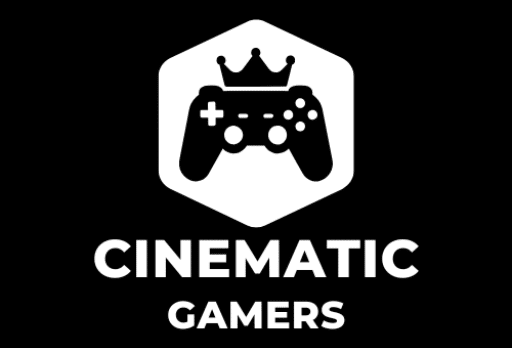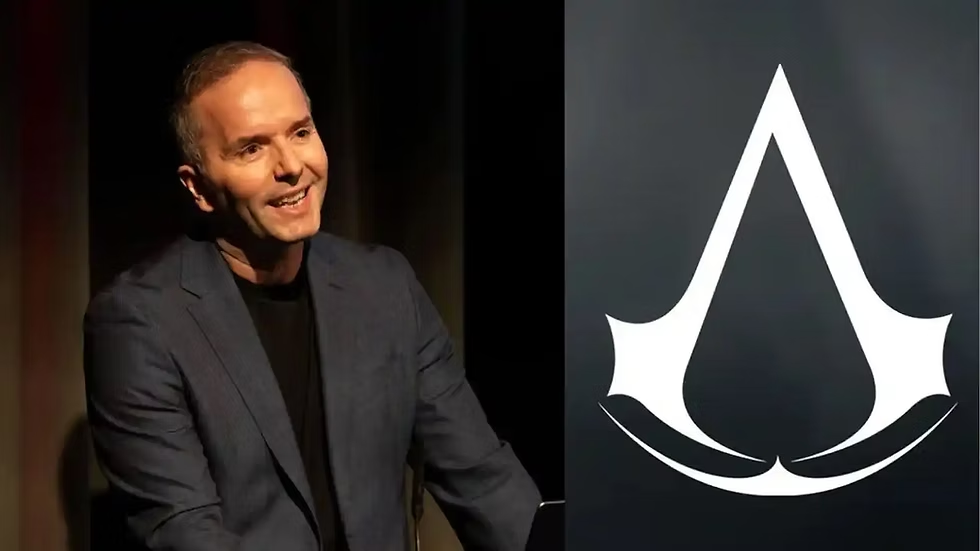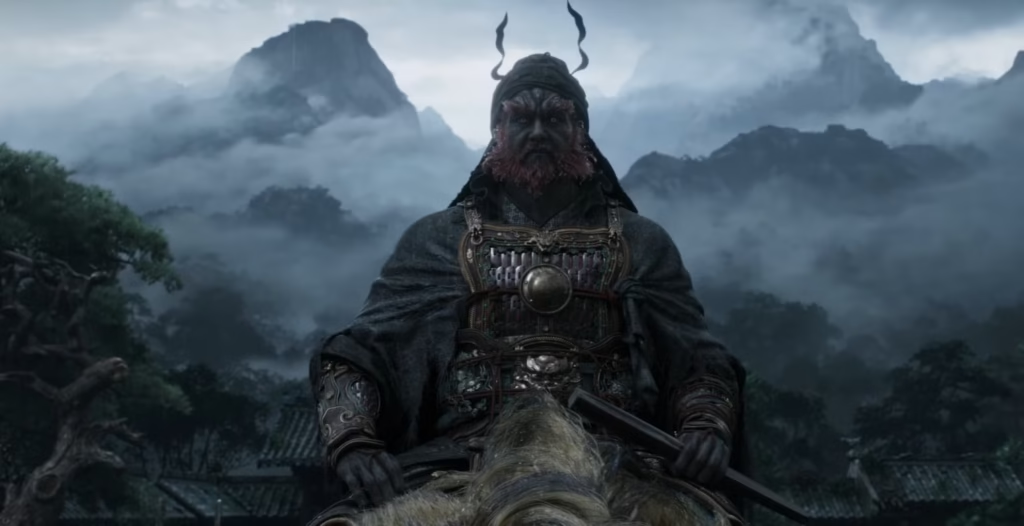Ubisoft confirms a major internal shift as longtime Assassin’s Creed figure Marc-Alexis Côté exits during a Tencent-backed restructuring phase.
By Wright Robinson, 20th October 2025
Marc-Alexis Côté, one of the most influential figures behind the current Assassin’s Creed era, has officially departed from Ubisoft after close to two decades. The announcement comes during a period of restructuring inside the company, with Tencent-backed Vantage Studios taking over management responsibilities for major Ubisoft brands. According to official statements, Côté was offered a position within the new structure but chose not to continue. His exit has sparked speculation among fans, as he was heavily involved in shaping the franchise’s shift toward large-scale RPG design and long-form open-world progression.
Who Is Marc-Alexis Côté and Why His Exit Matters
Marc-Alexis Côté joined Ubisoft in 2005 and gradually became one of the key decision-makers for Assassin’s Creed. He held senior production and brand leadership roles and helped guide the creative direction of multiple popular games made by the company. While not the individual game director on a single title, his influence was at a strategic level. Under his supervision, the Assassin’s Creed franchise expanded into a broader role-playing experience with longer campaigns, progression systems, and a stronger focus on sandbox freedom. With his departure, Assassin’s Creed loses a figure who had a strong impact on what the series became over the last decade.
The Creative Lead Behind the Franchise’s RPG Shift

After Assassin’s Creed Syndicate, Ubisoft took a noticeable turn with Origins, marking the beginning of the RPG phase. Although not a full RPG by itself, Assassin’s Creed Origins implemented strong RPG elements. This direction was reinforced through Odyssey and Valhalla, which leaned heavily into loot systems, gear upgrades, character builds and multiple endings. These titles were developed under the brand strategy overseen by Côté. While these games reached a larger mainstream audience and performed well commercially, they also sparked a debate within the Assassin’s Creed community. Many veteran players felt that the franchise lost its focus on stealth and targeted assassination missions in favor of wide-open RPG sprawl. Many also felt that the modern-day war between Assassins and Templars was losing its focus. Now whether the RPG shift strengthened or diluted the franchise remains a point of discussion, and Côté became closely associated with that creative identity.
Did the Modern-Day Storyline Fade Under His Leadership
Another major change during this era was the reduced emphasis on the modern-day narrative that once served as the backbone of the Assassin’s Creed universe. Earlier titles maintained a strong dual structure between historical and present-day storytelling, using the Animus as a key narrative device. However, after the death of Desmond, the present-day-storytelling became weak, especially after the more recent RPG installments. The modern storyline became minimal, often limited to brief segments that felt secondary to the main historical campaign. Fans who followed the lore from the Ezio and Desmond timeline noticed a clear shift in narrative priority. While it is difficult to say this was a direct choice by Côté, the period under his leadership marked a clear departure from the earlier narrative style.
Tencent Restructuring and the Real Reason Behind the Exit
Ubisoft recently formed Vantage Studios, a new structure supported by Tencent investment to oversee franchises like Assassin’s Creed, Far Cry, and Rainbow Six. Marc-Alexis Côté was expected to continue within this new structure but declined the position and chose to leave instead. This move has led to speculation that creative control over Assassin’s Creed is shifting again. It is possible that Ubisoft wants to reposition the franchise to adapt to changing player expectations and address feedback regarding RPG fatigue and the overwhelming scale of recent games.
What This Means for the Future of Assassin’s Creed
With Marc-Alexis Côté stepping away, the future direction of Assassin’s Creed becomes a topic of renewed interest. Recent titles like Mirage already hinted at a return to a more focused and stealth-oriented style, closer to the series’ original roots. Upcoming projects such as Hexe are rumored to explore darker and more narrative-driven territory rather than continuing the loot-based RPG formula. While Ubisoft has not stated that it will abandon the RPG structure entirely, the leadership shift suggests that the company may be open to recalibrating the franchise. Whether this results in a balanced blend of classic design and modern scope or a full pivot away from the current formula remains to be seen.
Also check out why Assassin’s Creed Shadows has received this much of controversy….



